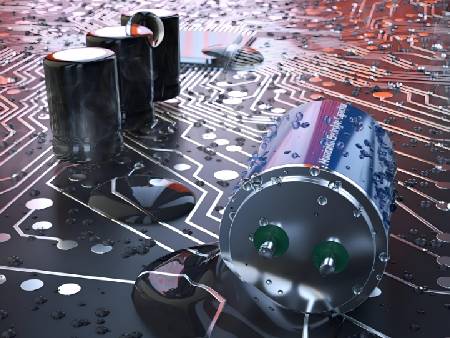Share to
Capacitors in
energy storage system are a commonly used device, whose main function is to store and release electrical energy. A capacitor is an electronic component that can store charges and release them when needed, consisting of two conductors and a dielectric. During charging, charges accumulate between two conductors to form an electric field; When energy is needed, capacitors can quickly discharge and release stored electrical energy.
Capacitors have the characteristics of fast charging and discharging rate, long cycle life, and low internal resistance. They separate two conductors through an insulating medium, and the energy stored in charge exists in the form of an electric field.
In energy storage systems, the role of capacitors includes the following aspects:
1. Energy storage and release: Capacitors can store electrical energy and quickly release it when needed, providing the required electrical energy for the system.
2. Energy regulation and balance: Capacitors can regulate and balance the voltage and current in the system, maintaining stable operation of the system's electrical energy.
3. High speed response: Capacitors have the characteristic of fast response, which can provide the required energy in an instant to meet transient load changes or grid frequency regulation needs.
4. Improve system efficiency: Capacitors can reduce voltage fluctuations and power losses in the system, improving system efficiency and stability.

5. Improving power quality: Capacitors filter out high-frequency noise and voltage fluctuations in the system, increase the power factor of the system, reduce harmonics, and improve power quality to ensure normal operation of the system.
6. Power buffering and balancing: Capacitors can quickly absorb and release electrical energy, balance or buffer power fluctuations in the system, which is crucial for preventing voltage drops and improving system stability.
7. Provide instantaneous current: Capacitors can provide instantaneous high current to meet the starting current requirements of certain devices, or to cope with instantaneous load changes in the system.
8. Energy recovery: During braking or deceleration, capacitors can recover excess energy from the system and reuse it when needed to improve energy utilization efficiency.
9. Reduce system costs: By reducing reliance on traditional energy storage devices (such as batteries), capacitors can lower the overall cost of energy storage systems.
Capacitors play an important role in energy storage systems, contributing to the stable operation and optimized performance of energy storage systems by storing and releasing electrical energy, regulating voltage and current, and improving system efficiency. In practical applications, based on system requirements and characteristics, the type, capacity, and layout of capacitors should be reasonably selected to maximize their effectiveness and achieve more efficient, stable, and economical energy storage and utilization.

